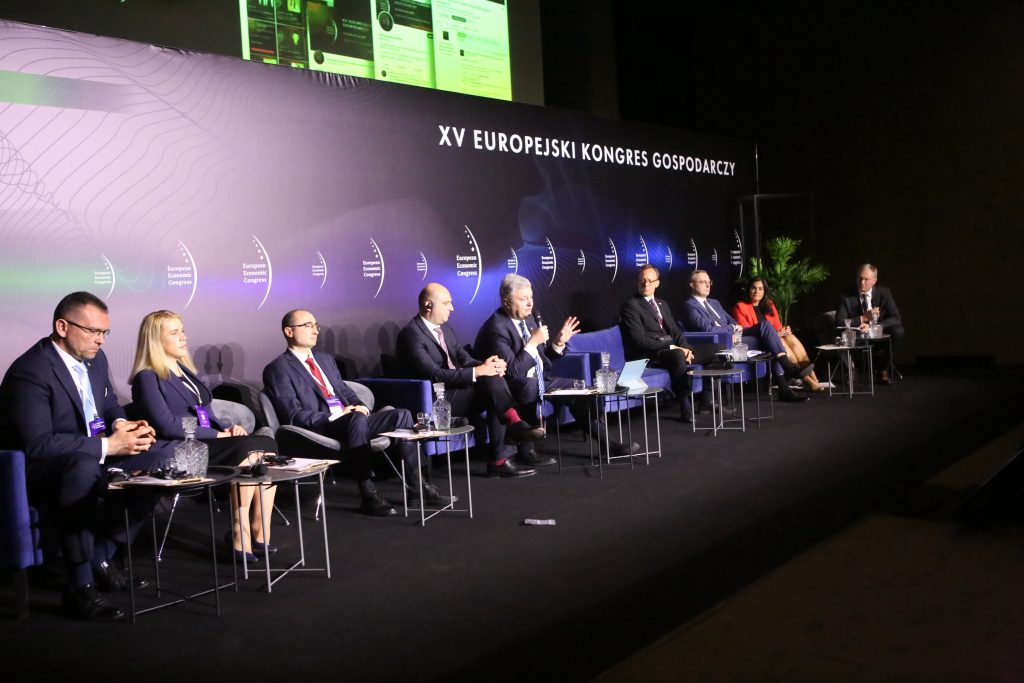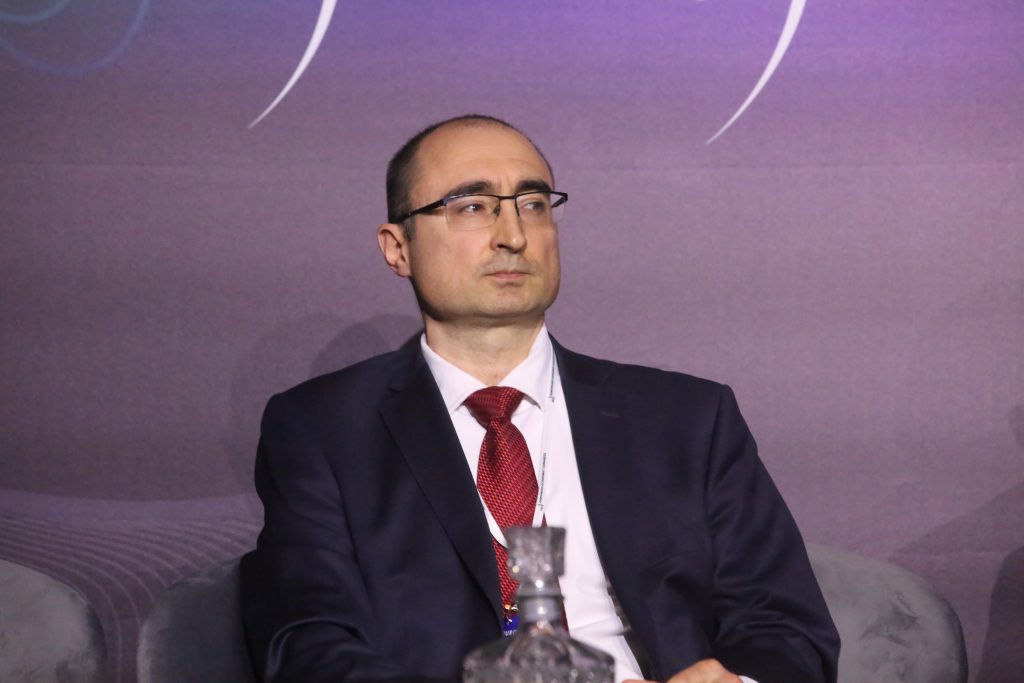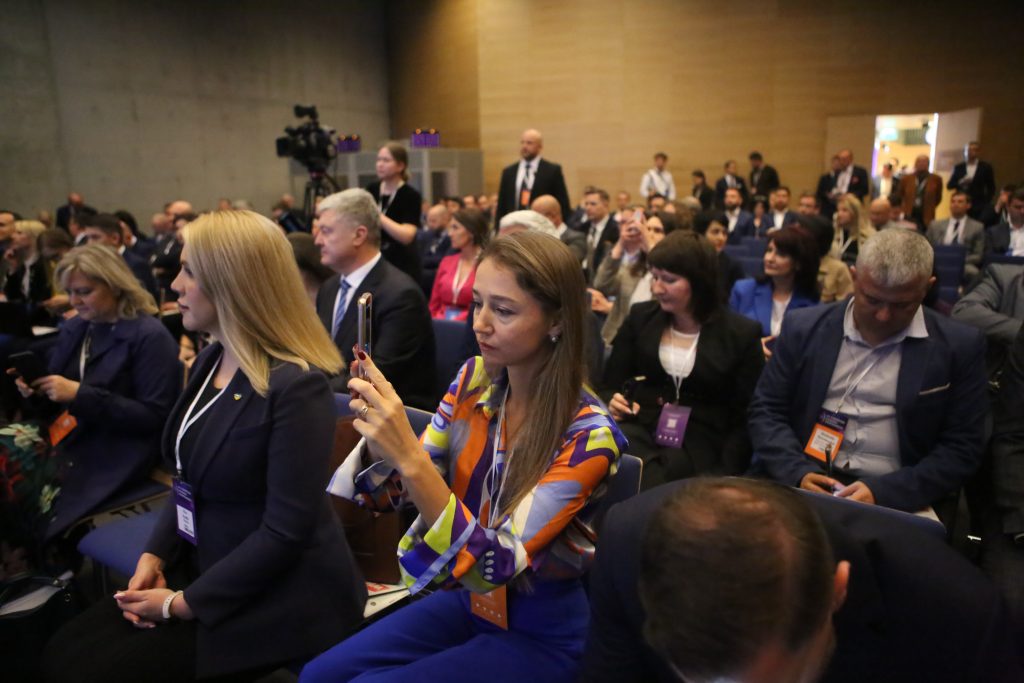Johannes Hahn, the European Commissioner for Budget and Administration, opened the high-level panel “Ukraine – War, Support, Reconstruction” by reaffirming Europe’s support for Ukraine in their battle against unprovoked aggression. Following this, former Ukrainian President Petro Poroshenko delivered a speech in which he emphasized that discussions on recovery and reconstruction should only commence after Ukraine has secured victory in the war. To achieve this, he argued that Ukraine requires a substantial amount of weapons and ammunition to defeat the Russian forces.

Dmytro Boyarchuk presented the key findings of the report “Economic Priorities in Post-War Ukraine” during the panel discussion.
He emphasized that Ukrainian authorities should be encouraged to expedite judicial and law enforcement reforms, with progress in establishing the rule of law directly linked to funding for reconstruction in the post-war period. Additionally, he highlighted the importance of simplifying procedures across all areas of economic life. Boyarchuk pointed out that complex legislation can lead to various interpretations by businesses and state representatives, often resulting in disputes that require the intervention of the judicial system.

In a country where the rule of law is still being developed, such as Ukraine, it is crucial to simplify relations to minimize cases when state officials and businesses can have different view on the same situation. Securing the relationships between the state and foreign private investors will be another critical aspect of post-war recovery, especially while judicial and law enforcement reforms are still underway. Foreign investors require not only protection against military risks, for which the World Bank has already developed instruments, but also protection against unpredictable actions by state officials and law enforcement agencies in an environment with suboptimal rule of law. The insights were well-received and supported by the other panelists at the event.
Also, on April 24, within the framework of the congress, another panel entitled “Construction Sector and the Reconstruction of Ukraine” was held. The panelists explored how Polish businesses could prepare for the eventual reconstruction of Ukraine. Speakers shared their experiences of conducting business in Ukraine and agreed on the need to unite their efforts and align with international financial institutions (IFIs) to safeguard their investments.

Ukrainian speakers suggested that investors should not wait for the end of the war, as there is a high risk that a decisive victory over Russia may never materialize, and a prolonged, simmering conflict is more likely. Dmytro Boyarchuk highlighted the various risks associated with the post-war period, including unrealistic expectations from both Ukrainian authorities – regarding the unconditional transfer of confiscated Russian assets to Ukraine – and European leaders, who assume that further successful reforms, particularly in establishing the rule of law, are guaranteed.

Dmytro Boyarchuk warned that these unrealistic expectations could lead to significant disappointment in the future. He urged Western leaders to adjust their messages to the Ukrainian leadership, making it clear that the rules of cooperation will change after the war and encouraging Ukrainian leadership to begin implementing reforms now, rather than waiting until they face strict conditionality on funding.